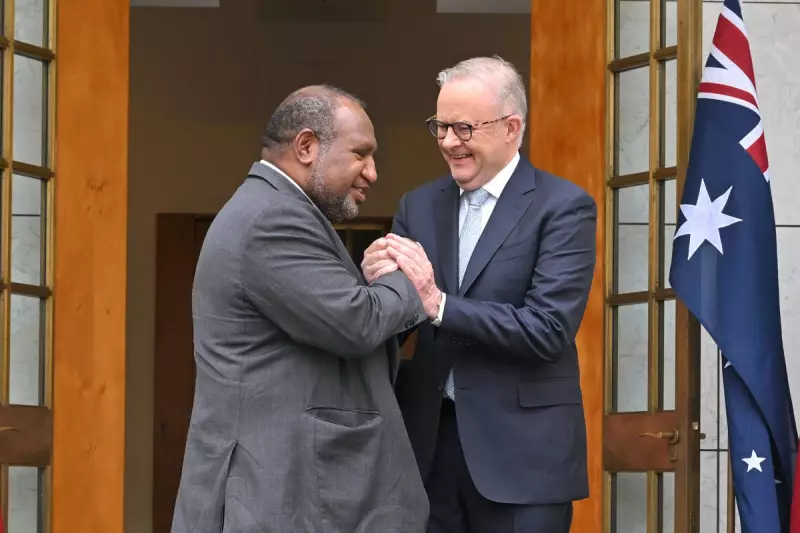
In a significant strategic move that underscores shifting power dynamics in the Pacific region, Australia has cemented a historic security agreement with Papua New Guinea, positioning Canberra as the primary security partner for its northern neighbour.
The landmark pact, signed during Papua New Guinea Prime Minister James Marape's visit to Canberra, represents Australia's most substantial commitment to regional security in decades and comes as Western nations intensify efforts to counter China's growing influence across the Pacific islands.
A New Chapter in Bilateral Relations
Australian Prime Minister Anthony Albanese hailed the agreement as "a natural progression" of the deep ties between the two nations, emphasising that the partnership extends beyond mere symbolism to deliver tangible benefits for both countries.
"This isn't about mere words on paper," Albanese declared during the signing ceremony. "We are creating a framework that will strengthen economic cooperation, enhance internal security measures, and bolster defence capabilities across the region."
Strategic Counter to Chinese Expansion
The timing of this agreement carries considerable geopolitical weight, arriving as the United States and its allies accelerate efforts to maintain influence in a region where China has been steadily expanding its economic and military footprint.
Papua New Guinea's strategic importance cannot be overstated—situated north of Australia, it represents a crucial geographical buffer and has become a focal point in the ongoing competition for Pacific dominance.
Mr Marape addressed the delicate balancing act his nation must perform, acknowledging the agreement's significance while maintaining Papua New Guinea's commitment to engaging with all international partners, including China.
Comprehensive Security Framework
The newly established partnership encompasses multiple dimensions of security cooperation:
- Defence collaboration: Enhanced military training and joint exercises
- Economic security: Infrastructure development and economic resilience programs
- Internal stability: Support for policing and domestic security operations
- Climate security: Addressing environmental challenges that threaten regional stability
This agreement builds upon earlier defence cooperation arrangements and comes just months after Papua New Guinea signed a separate security pact with the United States, granting American forces access to its ports and airports.
Regional Implications and Future Prospects
The Australia-Papua New Guinea security pact signals a renewed Western commitment to the Pacific region at a time when several island nations have been gravitating toward Beijing, lured by Chinese investment and infrastructure offers.
While the agreement strengthens Australia's position as the preferred security partner, analysts note that the real test will be in implementation—delivering concrete results that demonstrate the value of alignment with Western democracies over alternative partnerships offered by China.
As the geopolitical landscape continues to evolve, this partnership represents a significant milestone in Australia's efforts to maintain regional leadership and stability in an increasingly contested part of the world.





